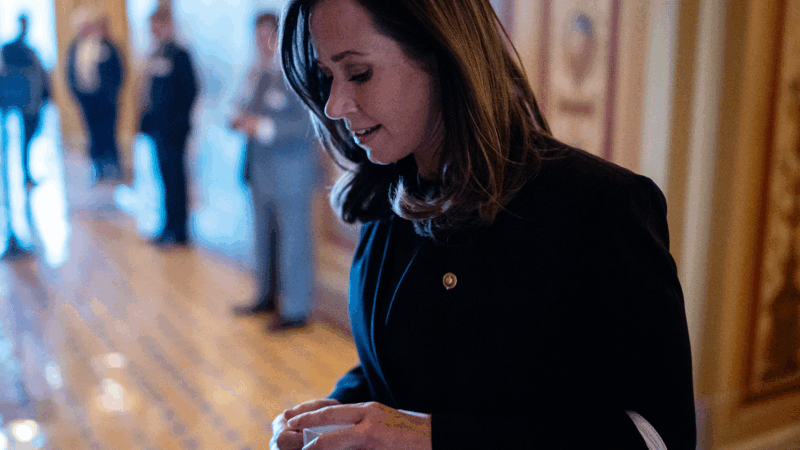Three Ways Alabama’s Medicaid Is Set to Change in 2016
On Wednesday, Governor Robert Bentley’s Alabama Health Care Improvement Task Force voted to recommend Medicaid expansion for the state, although not necessarily under the Affordable Care Act.
This comes as Governor Bentley maintains opposition to expanding Medicaid under the Affordable Care Act. Instead, Bentley and the Alabama legislature agreed to rebuild the state’s Medicaid structure. And the clock is ticking on that plan. Eleven months from now, Alabama’s new Medicaid system launches. Details about the overhaul have been fuzzy. But WBHM’s Gigi Douban gives us three ways the new plan will change health care for the one million Alabamians on Medicaid.
Flawed and Broken
Those were the words Governor Robert Bentley tossed around a lot to describe the old Medicaid. Bentley decided against expanding Medicaid under the Affordable Care Act. Two years ago, the governor pledged to come up with something else. Something better.
So how will this plan change health care for Alabamians on Medicaid?
#1. More Case Managers
“First, we will have a system that provides case management in a way that we’re only beginning to provide today,” Robert Moon, medical director for Alabama Medicaid says.
This case management basically helps people navigate the maze that is health care. And if you’ve ever been put on hold three times to make an appointment or had trouble remembering what the doctor told you to do, you know what this is like. Alabama has some Medicaid social workers, but it’s phasing in more. They help people like Lucile Miller of Hueytown.
Miller has five kids and 14 grandkids. She has a bad knee, limps around the house, and she gets short of breath just walking from room to room. She’s on nine different medications: pills for high blood pressure, asthma, water pills, prescriptions for her heart. Miller sees her social worker, Tonda, at least once a month. She helps with not just scheduling doctors appointments, but managing all those drugs.
“Getting them filled, calling them in,” Miller says, “but now, Tonda makes sure everything is on schedule for me. That takes a whole lot of load off for me.”
#2. No More Visit-based Payments
The second big change in Medicaid is how the state pays providers — like hospitals and mental health clinics and even companies that sell wheelchairs. Under the old system, Moon says, it all came down to three words: visits and volume. “The more visits, the more somebody gets paid,” Moon says. “So your incentive is to just do more and more visits if they’re needed or not.”
And same goes for tests. Now more tests means more money.
“We’re trying to change that dynamic to say we’re gonna pay you because you improved the quality of health care someone received, or you improved an outcome,” Moon says, pointing to outcomes like fewer heart attacks or fewer visits to the ER in a given region.
#3. Establishing Regional Care Organizations
The third way this is going to change Medicaid is with Regional Care Organizations. RCO’s are basically a network of clinics and hospitals. Right now there are 11 across Alabama.
Jim Carnes is policy director at Alabama Arise, an advocacy group for low-income residents. He says RCO’s will have unique flexibility to spend Medicaid dollars on unusual things.
“Like, let’s get the person an air conditioner. And help stabilize their day-to-day situation that will enhance their capacity to stay on their meds, the effectiveness of the medication,” Carnes says.
Not that the new Medicaid will put an air conditioner in every house. But the system is designed so that the healthier people get, the more providers get paid. And if an RCO isn’t sure whether to pay for someone’s ride to the doctor? Moon says it’s simple:
“The RCO’s are gonna have a reason to say, ‘Well, it’s probably beneficial for us to pay for that transportation get them the care they need so they don’t get sicker.’”
The thinking is if people get the care they need early on, it’ll save the state money in the long-term. And that savings is key for a cash-strapped Alabama. By October 2016, two-thirds of Alabamians eligible for Medicaid will get their care through a Regional Care Organization.
Forget the State of the Union. What’s the state of your quiz score?
What's the state of your union, quiz-wise? Find out!
A team of midlife cheerleaders in Ukraine refuses to let war defeat them
Ukrainian women in their 50s and 60s say they've embraced cheerleading as a way to cope with the extreme stress and anxiety of four years of Russia's full-scale invasion.
As the U.S. celebrates its 250th birthday, many Latinos question whether they belong
Many U.S.-born Latinos feel afraid and anxious amid the political rhetoric. Still, others wouldn't miss celebrating their country
SNL mocked her as a ‘scary mom.’ In the Senate, Katie Britt is an emerging dealmaker
Sen. Katie Britt, Republican of Alabama, is a budding bipartisan dealmaker. Her latest assignment: helping negotiate changes to immigration enforcement tactics.
Nancy Guthrie case: How do families of missing people cope with the uncertainty?
When a loved one goes missing, relatives can feel guilty simply for eating, says Charlie Shunick, whose sister was kidnapped. Shunick now helps others navigate a nightmare "nobody is prepared for."
This community festival embraces the joys of a frozen lake — while it still has one
As climate change accelerates, local experts say the date Wisconsin's Lake Mendota freezes over is getting later, making safe conditions for activities that rely on snow and ice harder to predict.





